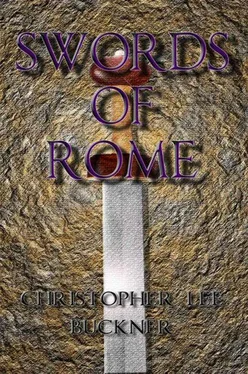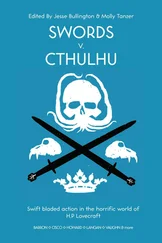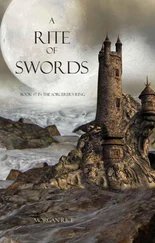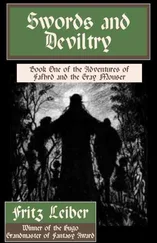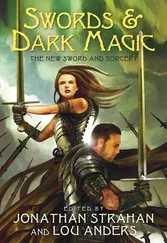Christopher Buckner - Swords of Rome
Здесь есть возможность читать онлайн «Christopher Buckner - Swords of Rome» весь текст электронной книги совершенно бесплатно (целиком полную версию без сокращений). В некоторых случаях можно слушать аудио, скачать через торрент в формате fb2 и присутствует краткое содержание. Жанр: Исторические приключения, на английском языке. Описание произведения, (предисловие) а так же отзывы посетителей доступны на портале библиотеки ЛибКат.
- Название:Swords of Rome
- Автор:
- Жанр:
- Год:неизвестен
- ISBN:нет данных
- Рейтинг книги:3 / 5. Голосов: 1
-
Избранное:Добавить в избранное
- Отзывы:
-
Ваша оценка:
- 60
- 1
- 2
- 3
- 4
- 5
Swords of Rome: краткое содержание, описание и аннотация
Предлагаем к чтению аннотацию, описание, краткое содержание или предисловие (зависит от того, что написал сам автор книги «Swords of Rome»). Если вы не нашли необходимую информацию о книге — напишите в комментариях, мы постараемся отыскать её.
Swords of Rome — читать онлайн бесплатно полную книгу (весь текст) целиком
Ниже представлен текст книги, разбитый по страницам. Система сохранения места последней прочитанной страницы, позволяет с удобством читать онлайн бесплатно книгу «Swords of Rome», без необходимости каждый раз заново искать на чём Вы остановились. Поставьте закладку, и сможете в любой момент перейти на страницу, на которой закончили чтение.
Интервал:
Закладка:
“Look at you; your desire for revenge must be overwhelming. You can barely contain yourself. But that pitiful sense of honor is standing in your way isn’t it? You want this back, don’t you? It was your friend’s after all,” Calfax mocked as he moved his horse nearer to Gaius.
“This is the way it should be, just like in the arena, two warriors standing against one another — not with forty thousand me between us ready to tear each other apart. Don’t you agree, Roman?” The very word, Roman , was said with so much hatred that Gaius’ skin crawled.
“Strike me down, young Roman. It is easy. Put your hands down on that sword and draw it. Take my life and have your revenge upon me. Forget all of this. Forget your duty and sense of honor, and just kill me — you know you want it this way. Let these fools fight. Their struggle means nothing compared to ours.”
Calfax waited as he threw open his arms, exposed his powerful chest, inviting Gaius to attack.
Despite his hatred for this man, Gaius did not give into his darker instincts and lash out.
“You are no fun, not like he was.” Calfax gestured to the clay medallion. It hung around his neck, among other trinkets that had belonged to other Roman lives he had ended.
“He whimpered like a baby when I slit his throat,” Calfax said. “I trust when you face your end, you will have more courage than he did?”
Gaius leaned in closer to Calfax. He wasn’t going to play the gladiator’s games any longer.
“On the field, to the south, I will be there. I will find you, and we will finish this once and for all,” Gaius finally spoke as he dug deep to draw on as much courage as he could find. His words, thankfully, were firm, because Calfax’s presence was terrifying. The man feared nothing and no one. Gaius knew he had to be strong before him; the old gladiator could smell fear like a dog and would exploit it without hesitation.
Calfax’s smile widened as Gaius turned his horse and galloped back towards the Roman lines.
“Then on the field it shall be, Roman! On the field!” Calfax cried out several times, roaring with laughter.
This battle had a whole new meaning for Gaius. While Rome needed to defeat Hannibal to move beyond the man’s legacy, he needed to face the gladiator to avenge the savagery of the man’s own sins.
Live or die, he would find him and thrust his sword into the man’s chest. This he vowed with every fiber of his being. This he would do even it took his last breath.
CHAPTER FORTY-SEVEN
Gaius stared into the faces of his men. All of them now, each and everyone he knew. They, like he, were the survivors who had lived, fought and bled in the long war against Hannibal and his horde. Each man listened to him with full attention. Everyone man knew what this day meant, but so too they knew who they were going to face.
“I can see it in your eyes. I have heard it during the silent nights. You fear what lies across this valley and the man who leads this army against us.” Many of Gaius’ men grumbled disapprovingly, which caused him to smile. “You fear Hannibal as all Romans do. You fear that the gods have forsaken us and have blessed this man with immortality and foresight.”
The rumbling between the men grew louder and angrier with each new word.
“We are just another long line of walking dead, only we don’t know it yet. This is what you believe, isn’t it? We should turn around and run, or at the very least, have the decency to fall on our swords. For Hannibal cannot be defeated. He is better than any million Roman sons — is he not?!"
A chorus of voices rose louder and angrier. Gaius’ smile grew wider as his words rose higher, carrying over his men.
“Well, I tell you now, what they say is fabrications! Hannibal has never faced this army — these men — my Wolves before!”
The men cheered louder, which was mixed in with enraged laughter. Gaius allowed his men to carry on for several seconds longer before he continued.
“Romans,” his words grew lower now. “We have suffered greatly — not a brother here hasn’t been touched by the sorrow that this man has brought to each of us, but here today, all of Rome has come united and will cry out in one voice; the Republic shall not fall, now or ever!”
The men of the Sixth Legion roared with excitement as Gaius rode back and forth in front of his men.
“When the signal comes, we will ride out and face the enemy. We will engage them and slaughter them to the man. We will ride behind Hannibal’s lines and cut his veterans to pieces, and when that is done and this war is over, he and the whole world will forever know the name of this legion, and tremble with fear!”
The roars of the Wolves carried over the whole battlefield. All sides, Roman and Carthaginian could hear them, and perhaps wonder was this the day that the unbeatable Hannibal would finally be defeated?
“Very inspiring,” Maurus said with a cheerful smile as Gaius rejoined him. “A bit melodramatic, don’t you think?”
“Whatever works, my friend,” Gaius replied with a wide grin.
The Sixth remained still a bit longer as Gaius could feel the anticipation build. Across the field, beyond the haze of the sun, he could hear the roar of his enemy, the echoes of the powerful elephants and the beating of Carthage’s drums.
“I am coming home, my love,” Gaius uttered to himself as he drew his sword, which was followed by the thousands of men who stood in formation behind him. And then, carried over the distant horizon, he and all the Sixth heard it, the final horn blow — the signal to attack.
“For Rome!” Gaius roared as he kicked his horse and raced across the desert — the whole of the Sixth charging behind him.
CHAPTER FORTY-EIGHT
The cavalry charge was intense. Gaius had never been in one so large and this furious, as over five thousand, men collided with a thunderous clap of flesh and iron. The sounds of men and animals screaming as they were being chewed to pieces with deadly efficiency was overpowering, yet Gaius stayed poised as he rode through the first wave of riders who had charged headlong into his men. Now, the charge had ended and both Roman and Carthaginian were mixed together in a deadly duel — the victor would break the other’s lines and ride around to the main center, enveloping the army and claim victory. It was a simple tactic that was devoid of any trickery or surprises. The battle would be decided by the merit of the men, their equipment, training and experience.
Blood splashed across Gaius’ face. He couldn’t avoid a mouthful of the salty — coopery taste of his opponent’s gore going down his throat. He had learned a long time ago to ignore the strange unnatural taste as his sword cut across the face of one horseman who charged towards him. For the moment, he was with a group of a dozen or more Roman riders, but with each savage micro battle between the greater engagement, men fell or were pushed further into the melee.
For all the tactics and training he had received in his life none of it meant anything, not in the heat of battle. He could call out if he liked, but his words would easily be drowned out by the sounds of battle. So, Gaius worried about one opponent at a time as he moved, still on his horse through the Carthaginian ranks.
He had lost count how many men he had killed or wounded. He himself already sustained half dozen cuts upon his body, but thankfully, his superior armor protected him from anything too serious. Most men he shoved his sword into didn’t even see him. It was the nature of the conflict. With so much dust and chaos surrounding the battlefield, men just pushed and thrust into anything that moved either before them, or to the sides. It was becoming hard to distinguish friend from foe, and these were merely the early moments of the battle. It was only when the tip of his blade met resistance, and then the splatter of blood that Gaius knew he had actually killed someone. Soon, however, most of the riders on either side of the battle had dismounted, either because their horses were struck down, being as they were a bigger target than the man who rode them, or forced down.
Читать дальшеИнтервал:
Закладка:
Похожие книги на «Swords of Rome»
Представляем Вашему вниманию похожие книги на «Swords of Rome» списком для выбора. Мы отобрали схожую по названию и смыслу литературу в надежде предоставить читателям больше вариантов отыскать новые, интересные, ещё непрочитанные произведения.
Обсуждение, отзывы о книге «Swords of Rome» и просто собственные мнения читателей. Оставьте ваши комментарии, напишите, что Вы думаете о произведении, его смысле или главных героях. Укажите что конкретно понравилось, а что нет, и почему Вы так считаете.
